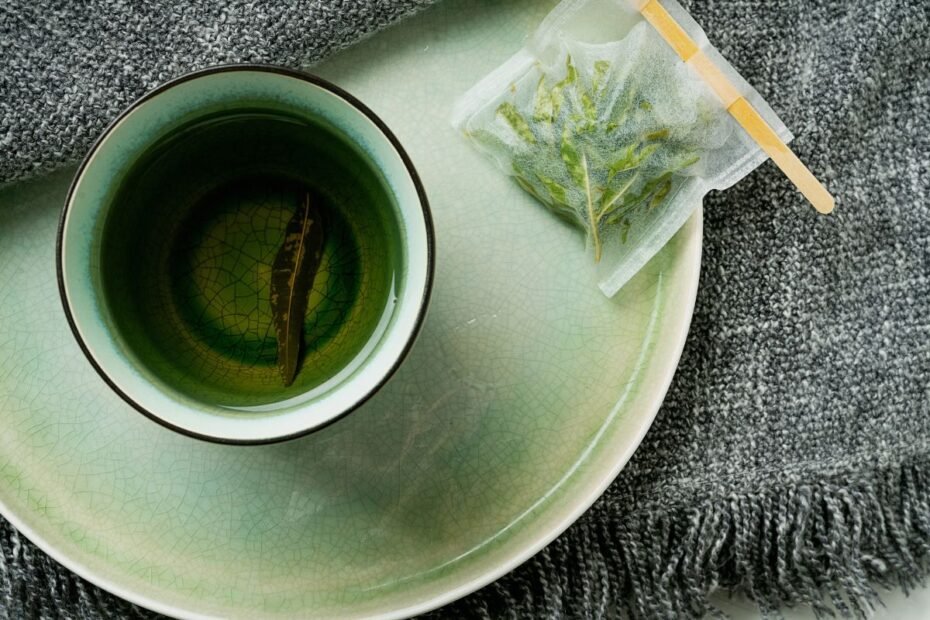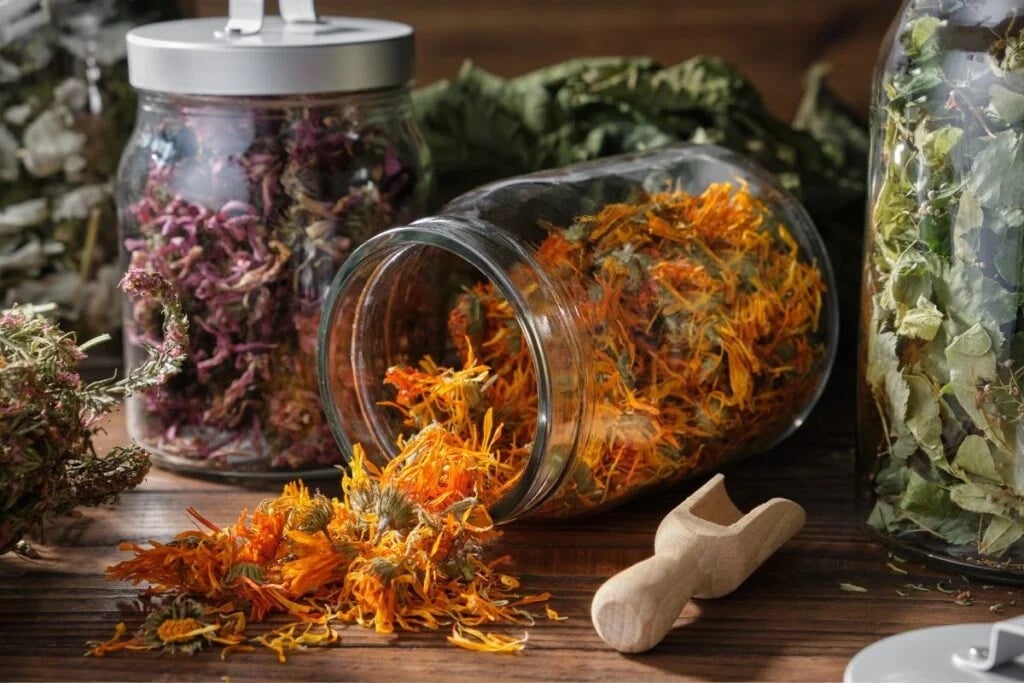Verbena is a very decorative flower in our flowerbeds. They delight us with their multi-colored flowers and soft, unobtrusive scent all summer, through to late fall. There are many varieties and species of verbena. But only one species is suitable for making verbena tea: common verbena. Why you should not confuse it with lemon verbena, and what makes vervain tea benefits unique?
Choose The Right Plant for Vervain Tea
Lemon verbena tea takes place when talking about verbena tea. It is very aromatic, with a mild, light lemon flavor. You can distinguish it by its scent, color, and calming, refreshing effect. However, lemon verbena (Aloysia citrodora) is not a verbena in botanics. It is a plant of the same family (Verbena) but of different genera. Another Aloysia citrodora name is lemon beebrush.
In general, lemon verbena is used more in cosmetics, perfumery, shower gels, creams, etc. It has anxiety-reducing and pain-relieving properties, but the common verbena (the therapeutic one) is used in folk medicine. In addition, lemon verbena can even cause paralysis if not dried and used correctly.
Common verbena is a plant from which vervain tea with medicinal properties is prepared. Of course, we will also share a rather intriguing recipe for lemon verbena tea.
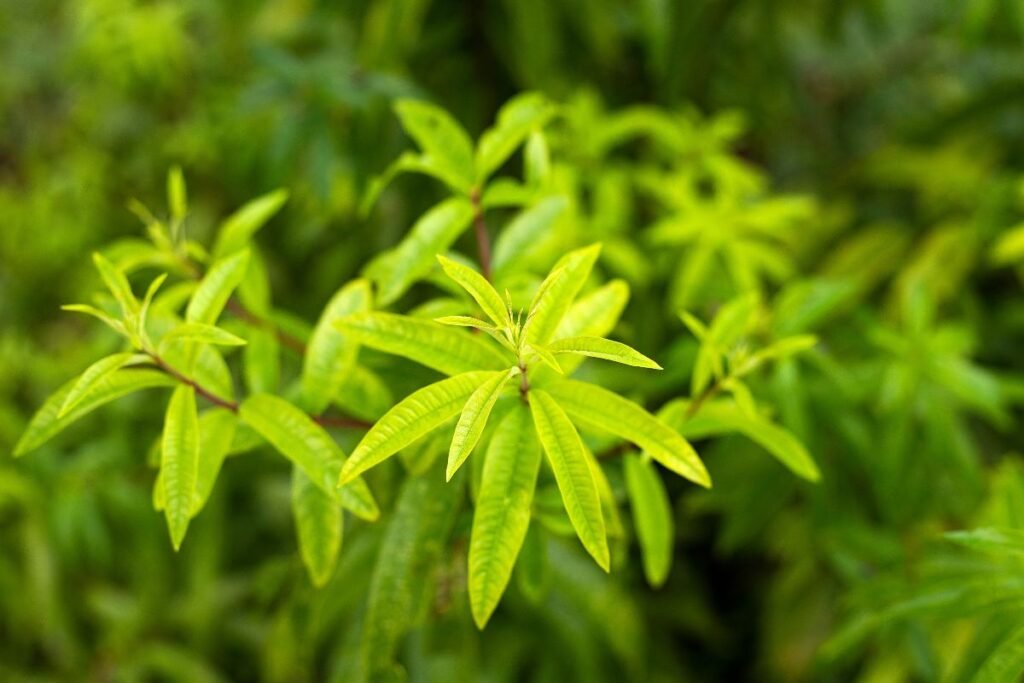
Lemon verbena
Common Verbena
Verbena officinalis, common verbena or common vervain, is one of the four species of verbena grown in Europe. Other species are Verbena hybrida, Verbena rugida, and Verbena bonariensis. As mentioned above, the other three species are cultivated as ornamental flowers. Only the common verbena has medicinal properties.
Verbena grows annually in many countries because it cannot tolerate cold winters. They are perennial herbaceous plants when they grow naturally.
Common verbena is not as decorative as its other ‘sisters.’ It is called the ‘iron herb’ because of its unique healing properties. This plant has the name of Thor in Scandinavia, Aphrodite in ancient Greece, and Jupiter’s Flower in ancient Rome. The Christian believes, that common verbena has stopped the bleeding of Christ’s wounds. And some other European people used it to ward off vampires.
So, people grow common verbena in therapeutic plant beds and do not grow naturally in most cases. It also freezes at temperatures below -12–15 °C. The plant can hibernate unless covered. But it cannot survive heavy winters. Vervain has to be reseeded every year. It grows up to 30–70 cm tall. The plant has elongated, ovate, 4–9 cm long, and 1–5 cm wide leaves. It blooms in June–July with small, light purple flowers.
People use fresh or dried aerial plant parts for medicinal purposes. Leaves, flowers, and young shoots of verbena are spice for culinary purposes, such as flavoring sweet dishes and making jams in Western European countries and the USA.
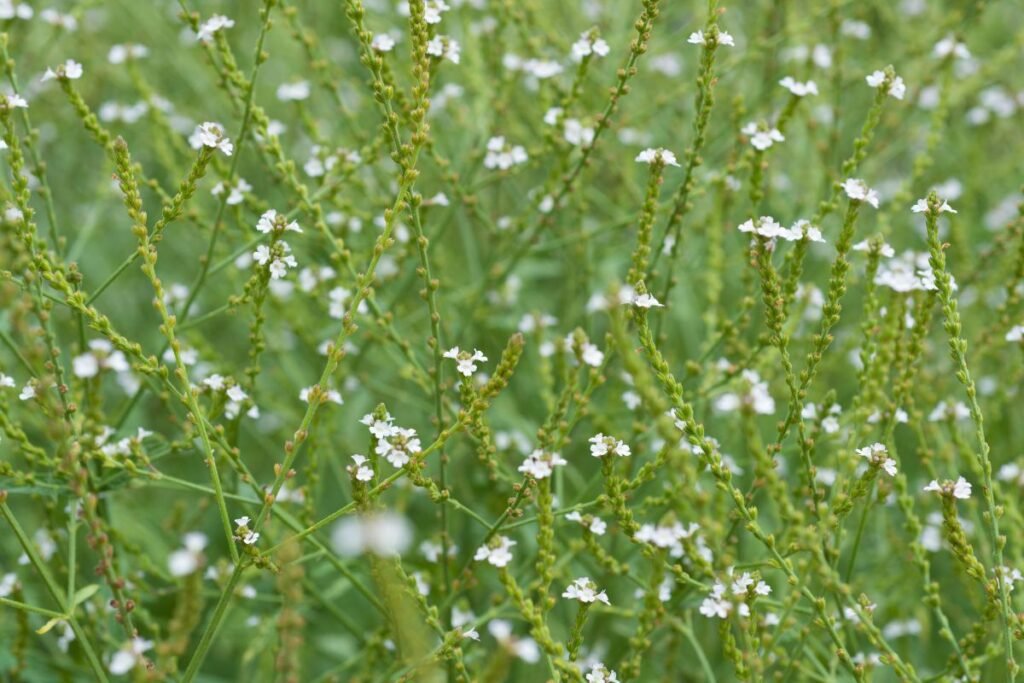
Common verbena
Benefits of Verbena Tea
Verbena contains more than 20 beneficial plant compounds, including glucoside verbenalin, alkaloids, essential and camphor oils, bitter substances, flavonoids, and more.
In folk medicine, vervain tea benefits are:
- It relieves indigestion, bloating, and flatulence.
- Treats nervous disorders. It treats insomnia, stress, and anxiety. There are also studies supporting its benefits for the brain, especially after damage caused by stroke.
- The verbenaline in the tea ensures adequate blood and oxygen supply to the brain. It also prevents the loss of brain cells and neurons in Alzheimer’s disease.
- Vervain tea may have a positive effect on epileptic seizures.
- It has antimicrobial properties. It inhibits the growth and multiplication of bacteria such as Staphylococcus, Salmonella, and Escherichia coli.
- Normalizes the menstrual cycle and relieves PMS symptoms.
- Verbena tea is beneficial for respiratory diseases such as colds, flu, and bronchitis.
- Relieves headaches.
- Tea compresses treat wounds, psoriasis, and eczema, that take a long time to heal.
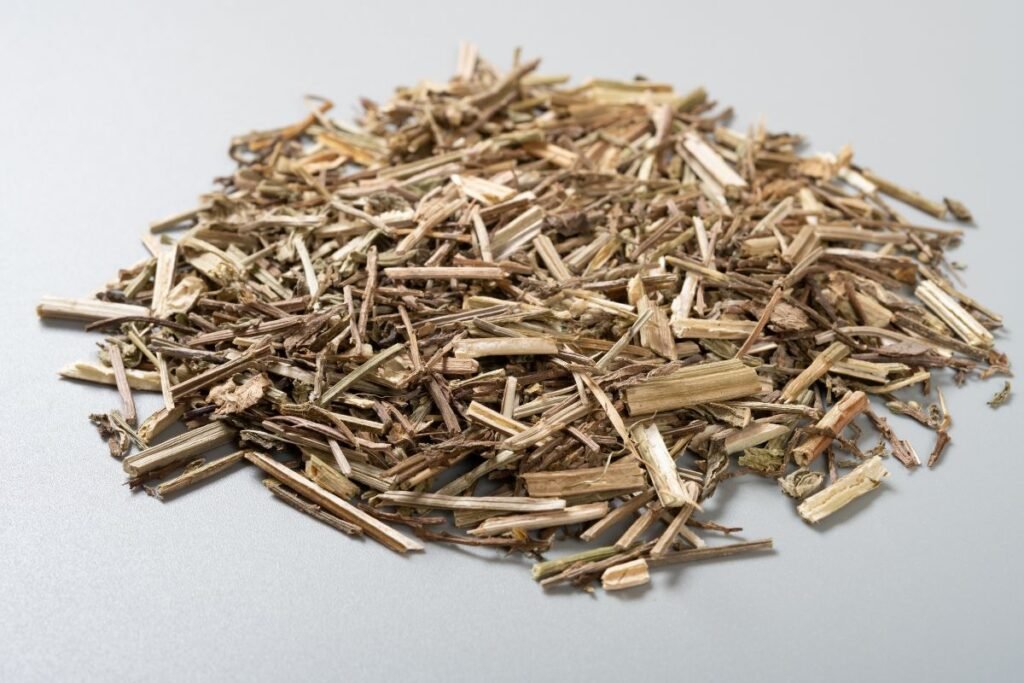
Side Effects of Vervain Tea
When used in moderation, verbena tea is safe for most people and does not cause side effects. However, pregnant and breastfeeding women or people allergic to the verbena should not consume it. Verbena can also affect some medicines, so consult your doctor or pharmacist before using verbena tea for medicinal purposes.
Vervain Tea Benefits for Cough
Due to its anti-inflammatory and antimicrobial properties, verbena tea is particularly effective in treating colds and respiratory diseases.
Ingredients:
- 1,5 tbsp. dried vervain herb;
- 1 glass of water.
Preparation: pour boiling water over the verbena herb, cover, and leave to steep for 5–10 minutes. Drain.
Use: take 2-3 cups daily.
Suggested use: 1-2 cups per day. 1-2 cups, preferably at least one at bedtime.

Verbena Tea Benefits for Digestive Problems
For digestive problems, especially bloating and intestinal cramps, folk medicine recommends a tea from a mixture of verbena and other herbs.
Ingredients:
- each of ½ tsp. of vervain herb, chamomile, fennel seed, lemon balm, and crushed licorice root;
- 300 ml of water.
Preparation:
Add all the herbs to a saucepan, cover with water, and boil. Leave to infuse for 10–15 minutes and drain.
Use: drink ½ cup 2-3 times a day.
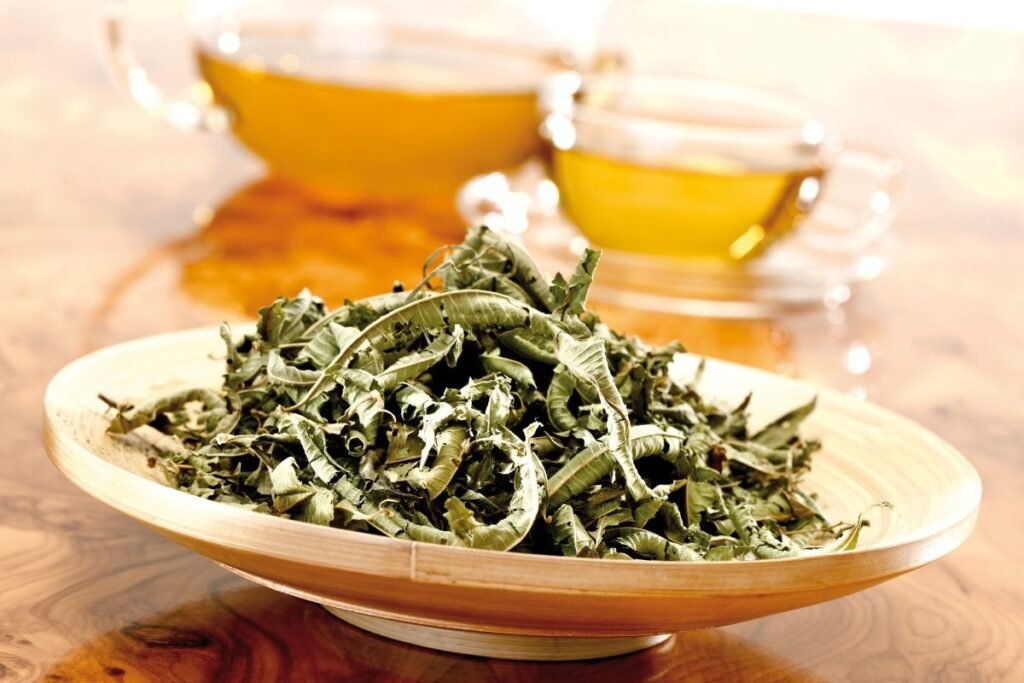
Vervain Tea Benefits for Sinusitis
This is a tea made from a mixture of several herbs. It is popular in Germany, it is used in folk medicine for sinusitis treatment. The several types of herbs in the tea enhance each other’s effects. This tea liquefies and eases the drainage of mucus from the sinuses. In addition, verbena has an antimicrobial effect, which relieves symptoms and prevents the bacteria that cause sinusitis from multiplying.
Ingredients:
- 1 tbsp. elderflower;
- ½ tsp. of yellow gentian root powder;
- ½ tsp. of primrose flower;
- 1½ tsp. sorrel herb;
- 250 ml of water.
Preparation:
Cover the medicinal ingredients with boiling water. Cover and leave to infuse for 15-20 minutes. Drain.
Use: drink ½ cup up to 3 times a day.
Lemon Verbena Tea Benefits: to Stimulate Libido
As promised, here’s a recipe for a sensual tea that is made from lemon verbena.
Ingredients:
- 1 tbsp. elecampane root;
- one tbsp. lemon verbena herb;
- 1 tbsp. of dry mistletoe;
- 300 ml of water.
Preparation: pour boiling water over the herbs, cover, and leave to infuse for 30–40 minutes. Drain.
Use: drink a glass 1-3 times a day.
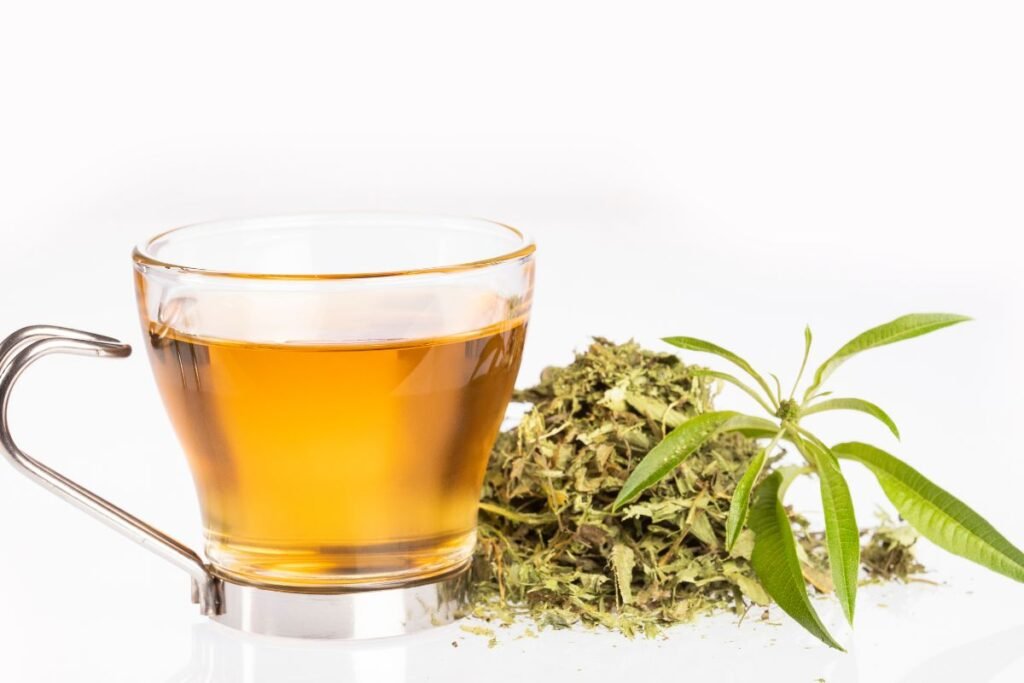
Sources:
Associative photos from © Canva.
